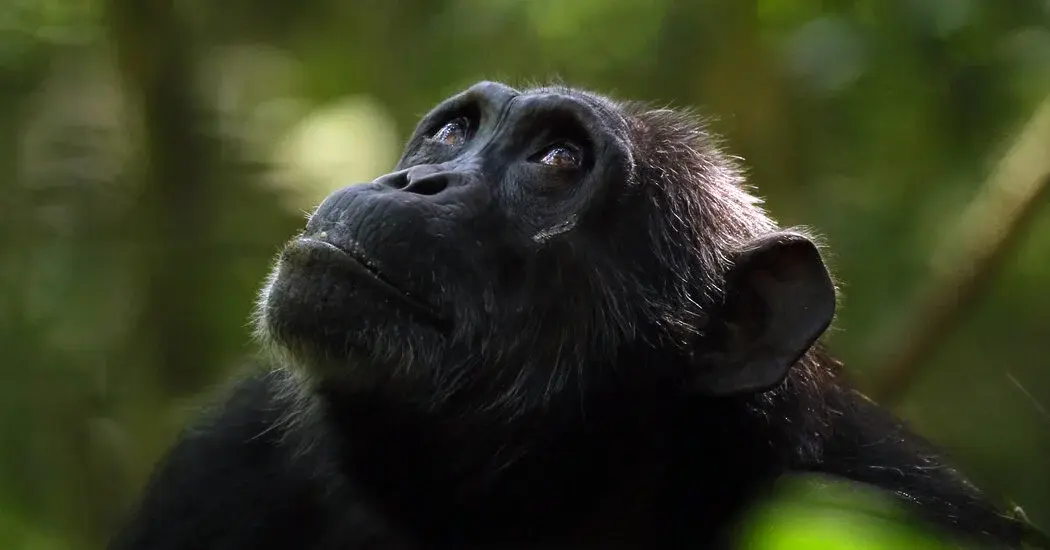It is not obvious why selection should favor menopause or the continued survival of individuals that can no longer reproduce. The famous Grandmother Hypothesis had been used to explain the evolutionary significance of menopause. A new study conducted on the Ngogo chimpanzees community of wild chimpanzees in Uganda challenges this hypothesis. Science 27 Oct 2023 Vol 382, Issue 6669 DOI: 10.1126/science.add547
I’d just like to drawn attention to this sentence from the accompanying Nature article.
Scientists doggedly followed post-reproductive Ngogo females to collect samples of urine as it showered from the trees.
So, if you’re wondering why we hadn’t found out yet, learning this involved camping deep in an uninhabited rainforest and waiting for an elderly chimp to drain her bladder on you.
It’s funny to think to what extent researchers have to go to gather data. I will draw your attention to a journal article I came across recently. I am linking to my post as well as the article itself. I think you will find it interesting. It’s called “hydrodynamics of defecation” published in Soft Matter.
The article: https://pubs.rsc.org/en/content/articlelanding/2017/sm/c6sm02795d#!divCitation
The post: https://literature.cafe/post/3089296
A related link was posted in this comm not too long ago.. It tries to address why female chimps would live past reproductive age, to begin with.
The catch here is that adult male chimps stay in the clan of their parents, while the female ones migrate to other clans. And this creates an asymmetry between old vs. newer adult females in the same clan:
- from the PoV of an older female, the children of younger females are likely also the children of her sons, thus her grandchildren.
- from the PoV of a newer female, the children of the older females are not relatives.
In situations where food is short, it’s advantageous for the clan to have less children: every new child spreads the food resources thinner, and puts at risk the lives of the other children. But that pressure to stop having children only affects the older female, because it puts at risk the lives of her grandchildren; for the newer females it’s more like “why would I stop having children? For the sake of my in-laws? Screw them!”.
Evolution solved this through menopause; you got the older females still alive, gathering resources, and taking care of the children of the clan, but they aren’t bearing new children.
🤖 I’m a bot that provides automatic summaries for articles:
Click here to see the summary
Perhaps, they proposed, it was a crucial ingredient in raising children whose big brains need lots of time — and parental support — to fully develop.
In 1966, the British evolutionary biologist William Hamilton speculated that women’s long post-reproductive life must have been important in the course of human evolution.
Brian Wood, an evolutionary anthropologist at the University of California, Los Angeles, conducted a statistical analysis of data collected from 185 Ngogo females and found that a significant number had lived long after their last known pregnancy.
“I find the evidence compelling that these females are living long past the end of reproduction,” said Michael Cant, an evolutionary biologist at the University of Exeter who was not involved in the new study.
But until now, only five species of whales had displayed the distinctive signs of menopause, defined as a sharp halt to their reproductive years long before the end of life.
Dr. Cant and his colleagues have found that old females often lead their fellow whales on long trips to hunting grounds, perhaps taking advantage of their decades-old memories.
Saved 85% of original text.
This is weird, i always assumed all other mammals went through it too. Why wouldnt they?
They don’t live long enough to go through menopause. Ever met a female cat that lived into her 50s?
We may soon discover that orcas also experience menopause as soon as some daring team of whale biologists carries out a similar study collecting orca pee.
Some whales have menopause too I think.
That wouldn’t surprise me at all. They certainly live long enough. 
Ah, I see. That’s interesting, never realized this! I guess I just thought mammals had similar reproductive setups (aside from different gestations and number of children etc) But I really have no idea haha.
Maybe because most mammals don’t menstruate. Only humans and a few others do, like bats and some apes.





